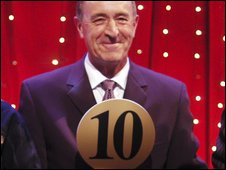(Catholic Commentary on Sacred Scripture series)
Curtis Mitch and Edward Sri
And now for a bit of more serious reading…. Back when I was a Protestant I liked to read Bible commentaries. A Bible commentary is a book which explains, verse by verse, what the verses of a book of the Bible actually mean. A good Bible commentary is written by a Bible scholar who teaches in a seminary or a Christian college, who knows the Bible book in its original language, who is familiar with important archeological discoveries that shed light on the Bible, or important issues about the surviving manuscripts involved.
When I became a Catholic it felt like all the work I did studying Bible commentaries and attending college Biblical theology classes were all in vain. I had to relearn everything ‘in Catholic.’ But finding a good Catholic Bible commentary was not so easy— until the Catholic Commentary on Sacred Scripture series came out.
These commentaries are just like the Protestant commentaries I am more familiar with. They are accessible to lay persons, but have enough content to be a reference for pastors/priests preparing a sermon/homily.
One difference, though, is that each section ends with a short ‘Reflection and Application’ section. This is good for the Christian, because Christians believe that we are not supposed to just interact intellectually with the Bible, but apply its teachings to our lives.
This first volume of the series (they don’t have commentaries on the Old Testament books. Yet.) is on the Gospel of Matthew. A Gospel is an account of the life of Jesus Christ, and the four earliest-written Gospels were written by Apostles— leaders of the early Christian church. In the case of the Apostle Matthew, writer of the Gospel of Matthew, we are dealing with an author who was an actual witness of the life of Jesus Christ— Matthew was chosen by Jesus Christ to be one of the ‘Twelve,’ an inner circle of disciples who received more teaching and, in the traditional interpretation, were ordained to be priests/pastors at the Last Supper.
The Gospel of Matthew really starts off telling the story of the Incarnation of the Son of God from the beginning— with a genealogy list. The authors of the commentary are very aware that this genealogy is a stumbling block to some readers of the Gospel— especially those new to Bible reading who start off with the first Gospel.
The whole text of the Gospel, in the New American Bible translation, is provided, which I like because I don’t like having to flip back and forth between two books, a Bible and a commentary. OK, I do that anyway because I prefer the KJV translation (and have one with the Deuterocanonical books.)
Protestants unfamiliar with Bible commentaries may get upset about quotes from Early Church Fathers and saints and the like (even though I first learned about Early Church Fathers from Protestant sources,) but you don’t have to pay attention to these things if you are not interested in them.
I very much enjoyed reading this commentary and I plan to buy and read more in the series. I ALSO intend to buy and read more volumes in the old Tyndale Bible commentary series, which I have liked since my teen years.
Lenten & Wuhan-Coronavirus Greetings from
Nissa Annakindt, her cats & critters, plus new lamb Daisy
My Facebook author page includes updates when I post a new blog post, so if you are on Facebook, please visit and ‘like’: https://www.facebook.com/nissalovescats
PERSONAL UPDATE:
I have recently finished a short book about blogging, called ‘Getting More Blog Traffic: Steps Towards a Happier Blogging Life.’ I’m currently trying to figure out how to turn my Scrivener project into someone the Kindle Create software can work with. (Wish me luck!)










